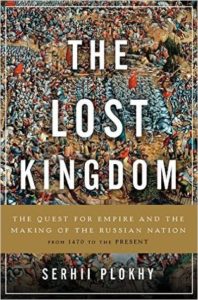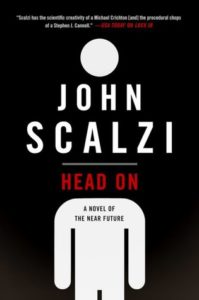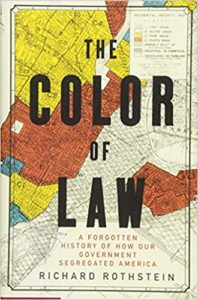Every aspiring creative knows that inspiration is that most fickle of creatures. The Muse will not be forced… but what if she does show up? And what if she’s out to get you?
Todd Milstead is an asshole. A literary wannabe who sponges off the fortune of his long-suffering wife Janis, his main asset is his eidetic memory, that he often wields as a weapon against the small circle of friends who gather to drink his booze for the price of putting up with his overbearing egotism. He’s amazed one night to discover that none of them are familiar with a book he can recite chapter and verse, a novel called All My Colors written by one Jake Turner. Turns out they’re not the only ones: no one he meets has ever heard of this book. When Janis has finally had enough and leaves, Todd, facing poverty and homelessness, decides to type out All My Colors and submit it for publication under his own name.
Despite a rough creative period, fortune seems to favor Todd. All My Colors is picked up, launching a suddenly sober Todd on a seemingly stratospheric trajectory. But he still can’t get over Janis, not because he cares about her but because he’s convinced she’s seeing someone else despite his own serial adultery being grounds for their divorce. Then the hallucinations start, and people around him keep dying in shockingly grisly ways. What is the truth behind All My Colors and how it’s been revealed to Todd, and what is the price he’ll have to pay for claiming it as his own?
This was a compulsively readable novel, which I found especially amusing given how compulsively written the book within the book was. Speaking of books within books, I enjoyed the literary gift box nature of this novel, and rated quite highly the excerpts included. Too many novels about fictional stories do a terrible job of convincing the reader that the subject matter is actually worthwhile: this is one of those rare books that creates a wholly convincing novel on which to hang its plot.
Thing is tho, I actually felt bad for Todd. I know he’s an asshole but he didn’t seem especially extraordinary in that respect to merit the treatment he received. But I suppose that is the point of the novel — or of any decent horror novel, really — that life can be arbitrary and unkind. It’s certainly the kind of book that will have you second-guessing where your ideas come from. In that respect, All My Colors is definitely more a book about every writer’s nightmares and less about a pompous jerk getting his comeuppance and taking his poor friends down with him in the process.
Interview with David Quantick to come soon!





